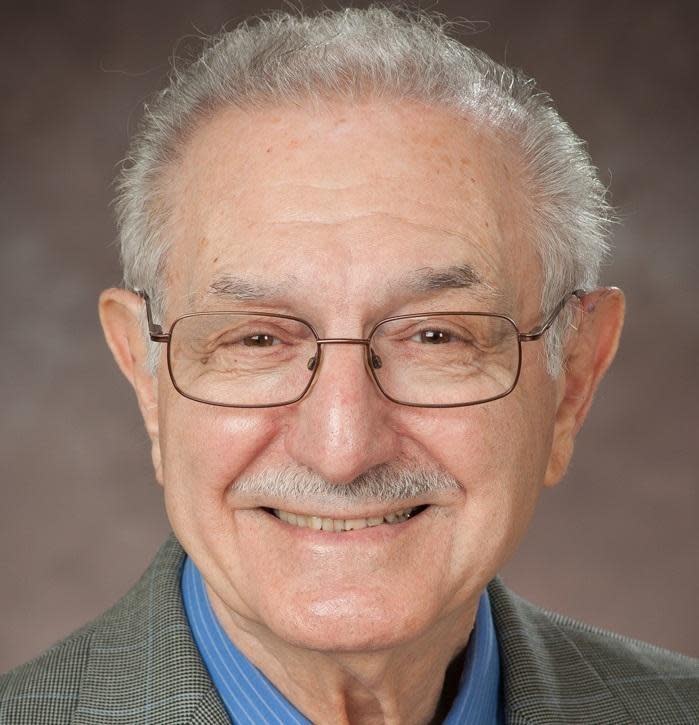The A, B, C's of reflexive pronouns
Most of us use pronouns frequently in speaking and writing. We are familiar with most types and therefore use them almost without thinking, (e.g., “I,” ”we,” and “they.“) What may surprise you, however, is that pronouns come in several flavors – five to be exact: personal, relative, interrogative, demonstrative, and indefinite. Today’s column deals mainly with the one subtype: the reflexive pronoun that is part of the personal family. Why? Because reflexive pronouns are likely to be the least familiar and therefore the most misused of all the pronoun types.
Today’s column is meant to explain and encourage their correct use.
While reflexive pronouns may mystify many of those who try to use them, they actually are easy to recognize. That’s because they are formed by adding “self” or “selves” to the more commonly used pronouns such as “your,” “my,” and “her.”
Many applications
In “The Mechanics of the Sentence,” Alice Hyde Hupp says these “self” words serve two main purposes:
The reflexive pronoun denotes that the action is directed back upon the subject of the sentence. Examples: “John (subject) hurt himself.” “The old man (subject) hanged himself.” Notice that these examples are straightforward statements in which every word is needed.
A second purpose is to provide emphasis.
Examples:
“The teacher himself did not know the answer.”
“The man did all the work himself.”
Observe that these examples differ from the first ones in that the sentences still would make sense even if the reflexives were missing. Adding them is what provides the emphasis.
In Modern English, -- a practical reference guide, Marcella Frank tells how reflexives can be connected to various parts of speech. She says: “A reflexive pronoun generally points back to the subject. It is used:
As the direct object of a verb: “You mustn’t blame yourself for that mistake.”
As the indirect object of the verb: “I bought myself a beautiful watch.”
As a prepositional object: “She’s angry with herself for making such a mistake.”
In “The Grammar Bible,” Michael Strumpf and Auriel Douglas note that “no reflexive pronoun can be the subject of a sentence. Instead, they often refer back to the subject. Example: “My parents treated themselves to a night on the town.”
Notice that “themselves” turns the action of the verb back to the “parents,” the subject of the sentence. This reflexive pronoun enables the writer to avoid repeating the subject later in the same sentence.
In his instructive book “Fine Print,” author James J. Kilpatrick opens one chapter with this attention-getting sentence: “Never use a reflexive pronoun if you can help it.” Soon after this jolting statement, offered in half-jest, he moderates his position by noting correct and incorrect uses.
He continues: “Many times, of course, reflexives cannot be avoided. Examples: ‘He hurt himself playing hockey.’ ‘I myself told him to stay away from wingmen.’”
But he stresses that “Far more often than not, we should take recourse in plain old homespun nominative and objectives pronouns “ Examples: “The Barnes family and I (not ‘myself’) arrived at the same time.” “After the hurricane, the three of us – John, Waldo, and I (not ‘myself’) moved into a small apartment.’”
A minority view
Most authorities I’ve encountered agree that the aforementioned rules and suggestions leave virtually no room for exceptions. However, a minority maintains there is a place for reflexive pronouns in informal communication.
The Harbrace College Handbook states, “In general, ‘myself’ is not a proper substitute for ‘I’ or ‘me’ but is substituted informally …“ The co-authors John C. Hodges and Mary E. Whitten cite two examples in which such substitution is justifiable:
The reflexive ‘myself’ can replace ‘I’ after comparisons with ‘than’ or ‘as.’ Example: “Everyone worked as well as myself.”
It also can be used instead of ‘me’ when it is the second member of a compound object. Example: “He allowed my brother and myself (compound object) to go home.”
In the earlier mentioned “Modern English,” Professor Frank also cites the use of reflexives as part of compound constructions. “In popular speech,” she says, “a reflexive pronoun is sometimes used as the last part of a compound subject or object.”
Examples: “My wife and myself (compound subject) were invited to the party.” “Her teacher asked her friend and herself (compound object) to help with the decorations.”
Notice that both of these sources limit such uses to “informal communication” and “popular speech.”
Bestowing credit
For years, I’ve heard too many speakers incorrectly use reflexive, “self” pronouns as they attempt to recognize others for their contributions at work or their service to the community. Unfortunately, their sentences incorrectly contain such reflexives as “myself,” “himself,” and “ourselves.”
Change: “John and myself wrote this 100-page history of this project.”To: “John and I wrote this …”
Change: “Nobody can solve this problem but ourselves.”To: “Nobody can solve this problem but us.”
Change: “Esmerelda deserves most of the credit for this accomplishment rather than myself.”To: “Esmerelda deserves most of the credit . . . rather than me.”
Perhaps such misuses are offered in an effort to sound modest. Instead, they simply sound wrong – and distract listeners who know better.
Ernie Mazzatenta, a Hendersonville resident, has been providing Times-News readers with a monthly grammar column since the mid-1990’s. He can be reached at joern@morrisbb.net.

This article originally appeared on Hendersonville Times-News: Ernie Mazzatenta's monthly grammar column. Topic: Pronouns

